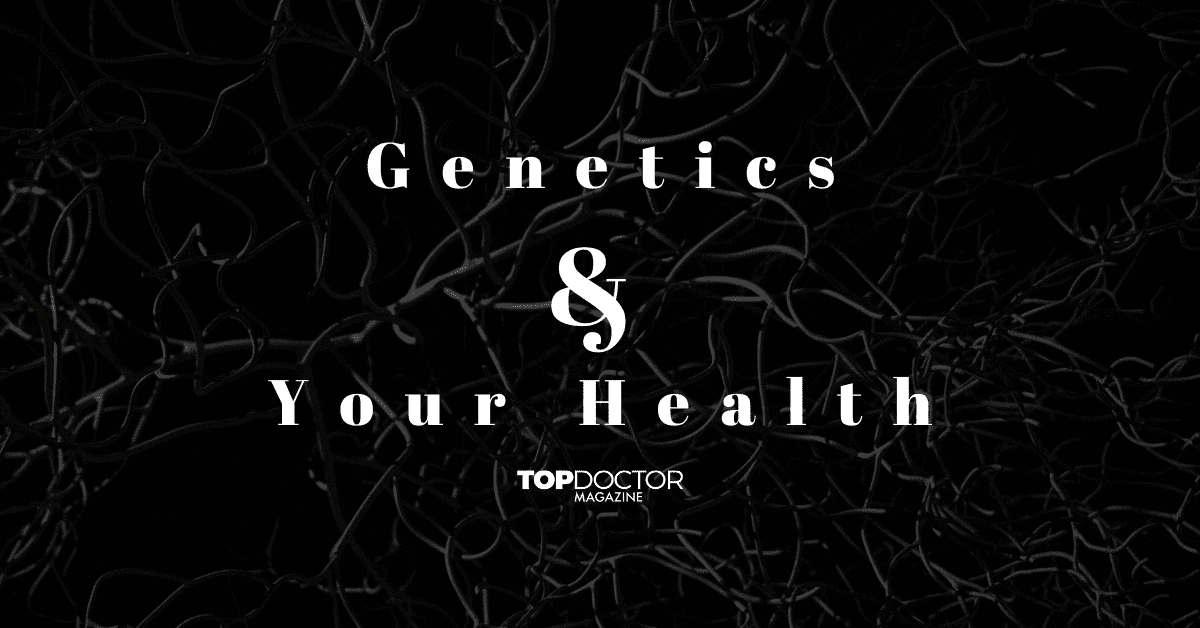Have you ever thought about your predisposition to certain diseases based on your family’s medical history? Some people may think that your chances of getting diseases or conditions are entirely up to lifestyle and fate. However, a significant portion of a person’s predisposition to certain medical conditions and diseases comes from genetics.
What is Genetics?
Before we get into the nitty-gritty of how genetics determine some aspects of your health, let’s first look at what genetics really are. Genetics is the study of genes and heredity, which is how a person’s unique traits are passed onto them from their parents. A gene is a blueprint for building molecules to ensure that your body functions properly.
Geneticists have discovered that we can learn a lot about people from genetics and utilize this information to further medical research and development. Genetics impacts a broad spectrum of scientific research and can be utilized to influence your everyday life.
How Genetics Can Affect Your Health
Although several factors go into developing certain diseases, such as lifestyle and exposure to disease-causing substances, your family history plays one of the most prominent roles as a risk factor. Diseases such as cardiovascular disease, psychiatric illnesses, cancer, autoimmune disorders and diabetes can be passed down to you from your parents and their genes. Therefore, being aware of your family’s medical history and propensity toward certain diseases is valuable for taking control of your health.
When a new human life is formed, the fetus has a complete set of genes from both the mother and the father. This is why knowing your family’s medical history can help you better understand your own health.
Being aware of your genes and family history can help you pick up on genetic predispositions. Having a genetic predisposition, also called genetic susceptibility, means you have an increased likelihood of developing specific diseases based on your unique genetic makeup.
If you know you have a genetic predisposition toward a particular disease, you can take better precautions and stay on top of your health. Regularly meeting with your doctor as a part of preventative healthcare is a great way to utilize your genetic knowledge to your advantage. This is one of the many reasons why the study of genetics can be so valuable: having a better understanding of genetics plays a vital role in developing better ways to prevent and treat diseases.
Genetics and Lifestyle
Having a genetic predisposition toward disease is not the only way to develop diseases. Although genes make a large contribution, lifestyle and environment may make you more susceptible to disease. Diseases caused by multiple factors are called multifactorial diseases.
However, genetic susceptibility does not necessarily guarantee that you’ll develop a disease. This is one of the reasons why proactively taking care of your health through regular exercise, healthful nutrition and annual doctor visits can have lasting benefits.
Even if your family history indicates that cancer or diabetes runs in your family, you can prevent and even break the cycle. Exercising and weight management can make a significant difference in several diseases, even if they are often passed down genetically. Although starting as early as possible is always best, research shows that turning your health around even in your 60s and 70s has major health benefits, so start wherever you are right now!
A Parting Reminder
Although you can’t alter your genetics, you can take wise, preventative steps to benefit your health. You can start by documenting your family’s medical history and see how far back you’re able to go. This approach may help you realize whether you have a genetic predisposition towards a specific disease. Also, sharing this information with your doctor will help them better personalize your care and look out for certain diseases early on.
Genes play a large role in your likelihood of developing some diseases like cancer and cardiovascular disease; however, other factors like lifestyle and environment are as significant as genetics. Ensuring that you’re eating a healthy, balanced diet, exercising regularly and having annual check-ups with your primary care doctor are great ways to start taking control of your health!





0 Comments